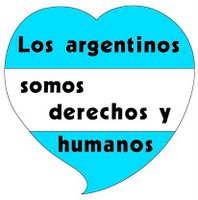Two key issues that struck me after the read: Universality and International Law
Universality:
All the declarations are founded on one premise: that the statements contained therein are all common sense. They are composed of ideals that are obvious rights or wrongs but for some reason or another –a war, evil counselors, genocide, etc.—have been abused or neglected and therefore must now be written down as a reminder to humanity. These ideals by default must be considered “universal” – they are an attempt to establish a universal morality and respect for humanity that is bound in both honorable agreement and universal law.
Problems:
The mere fact these declarations exist means that these ideals were obviously not so commonsensical at one point or another. That there was a point in history where these ideals were NOT understood as universal. The roles of individual [and by ‘individual’ I mean individual people as well as states and organizations] subjectivity and interpretation seem to be glossed over within the framework of many declarations. They tend to be interpreted differently in different contexts as understood by different people and entities. This becomes problematic when we are posed with vague definitions and non-descript statements within declarations ESPECIALLY when accusations of abuse are brought into the legal realm. Article 5 of the Universal Declaration of Human Rights states “No one shall be subjected to torture or to cruel, inhuman or degrading treatment or punishment” – defining ‘torture’ or ‘cruel’ or ‘inhuman’ is not addressed. This opens up space for interpretation by declaration signatories and allows for loopholes whereby instances such as those in Abu Ghraib and Guantanamo Bay occur.
Which brings me to the relationship between Law and Human Rights…
It is foolish to think that any Universal declaration of Human Rights can be upheld on a system of honor and agreement. Without an international enforcement mechanism or international legal system [ICJ maybe?], international law is of little use. It depends on the resources and legal systems within individual states to upkeep and incorporate these international ideals as part of their domestic legal framework. This is unrealistic as many states lack the resources and infrastructure to put into effect the legal system that is required to adhere to the protocols set forth in many declarations—Article 10 of the Universal Declaration of Human Rights: “Everyone is entitled in full equality to a fair and public hearing by an independent and impartial tribunal….” The point here is that law is nothing without enforcement and we have yet to establish a legitimate international enforcement/punishment/repercussion mechanism. [[ This is not taking into consideration the International Court of Justice mostly because I am not very well read on the topic ]]
Random thoughts:
- * I think the French Declaration of the Rights of Man is my favorite – Concise, to the point, legible and well-defined.
- * The English Bill of Rights: King James the II and his evil employees- how dare they.

